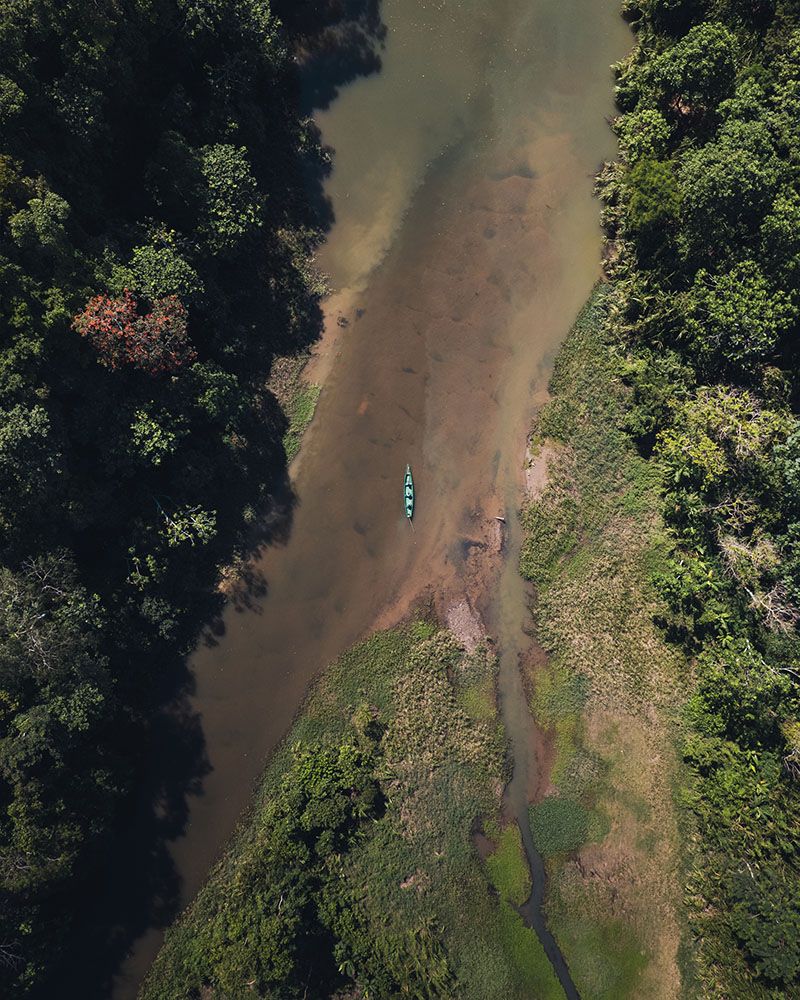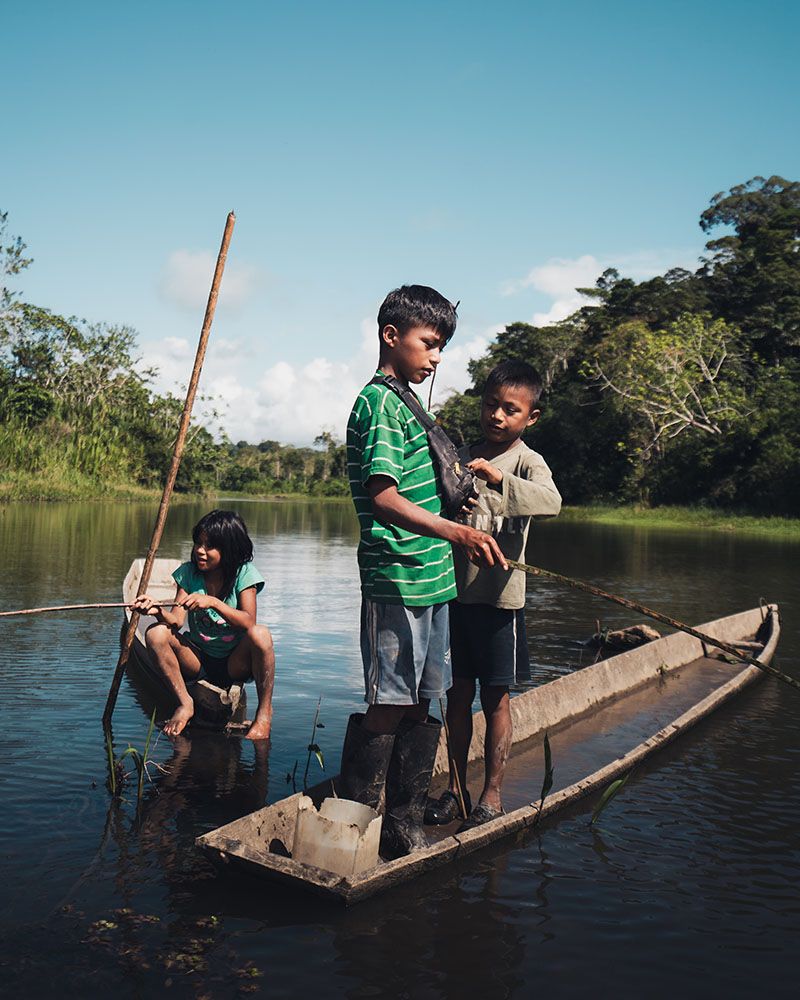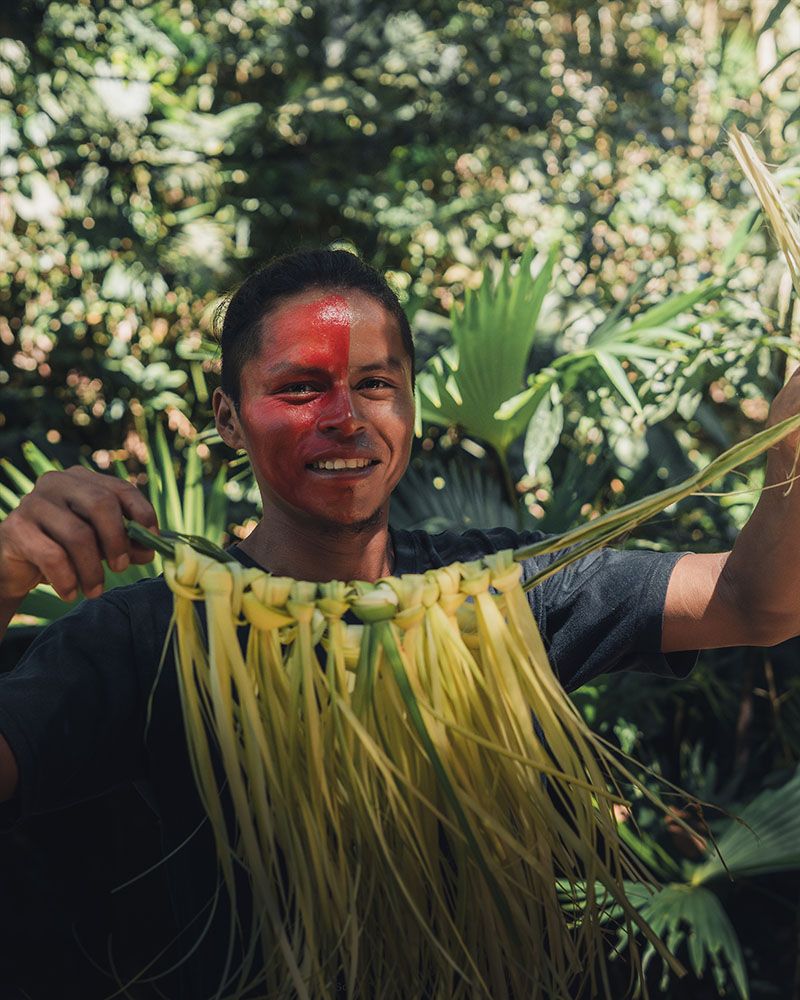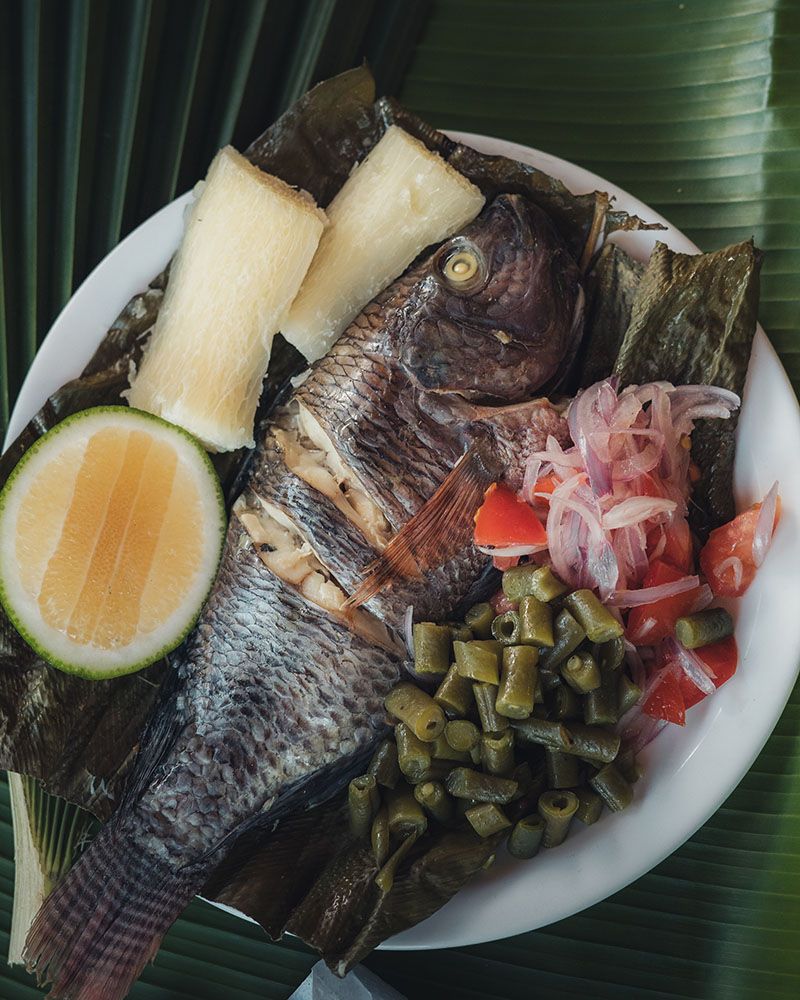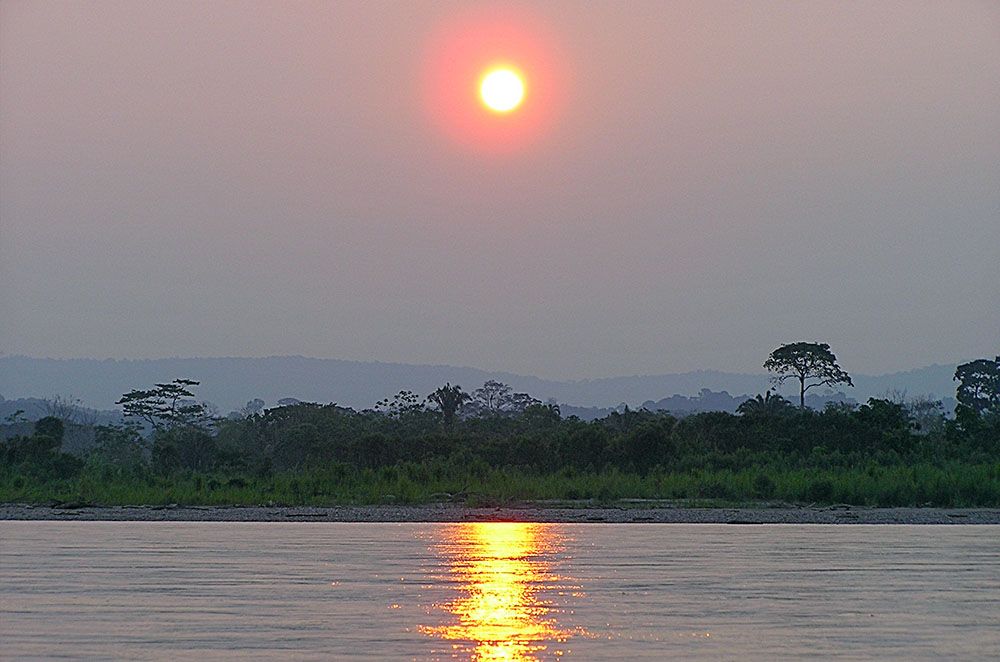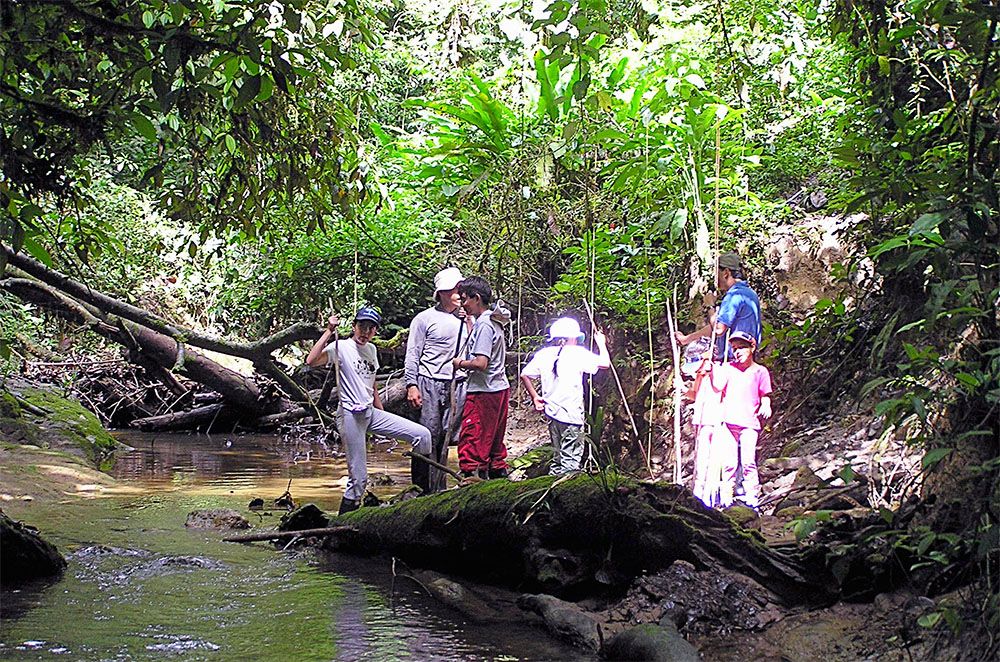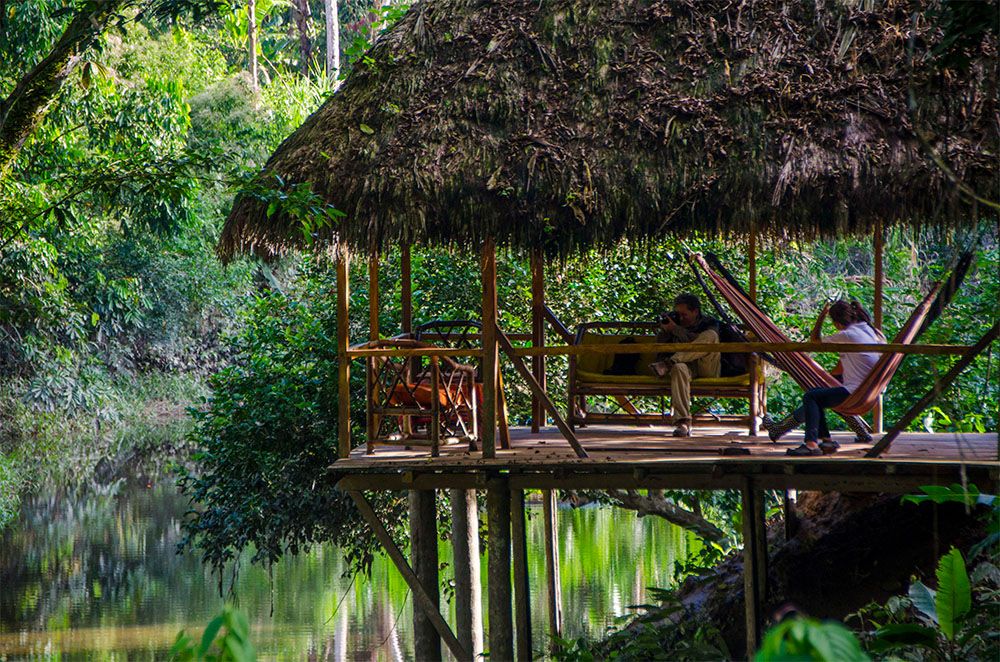Yacuma Reserve the head of the river, flowing into tomorrow
The massive Napo River is one of the main tributaries of the great Amazon River, discharging tons of water from the high Andes to the Amazon Basin and eventually into the Atlantic.
This ever-changing spirit of water, starting as glacial tropical ice, and eventually entering the most biodiverse ecosystem on the planet, is the base for all life in the jungle, and becomes part of the most massive freshwater river in the world.
Guests rarely know what to expect of Yacuma Reserve, as they board the canoe and start navigating this huge body of water, flanked by trees and ever-changing sand beaches.
This is where our name comes from: Yacu, meaning water; and Uma, meaning soul, spirit, or head in the local Kichua language.
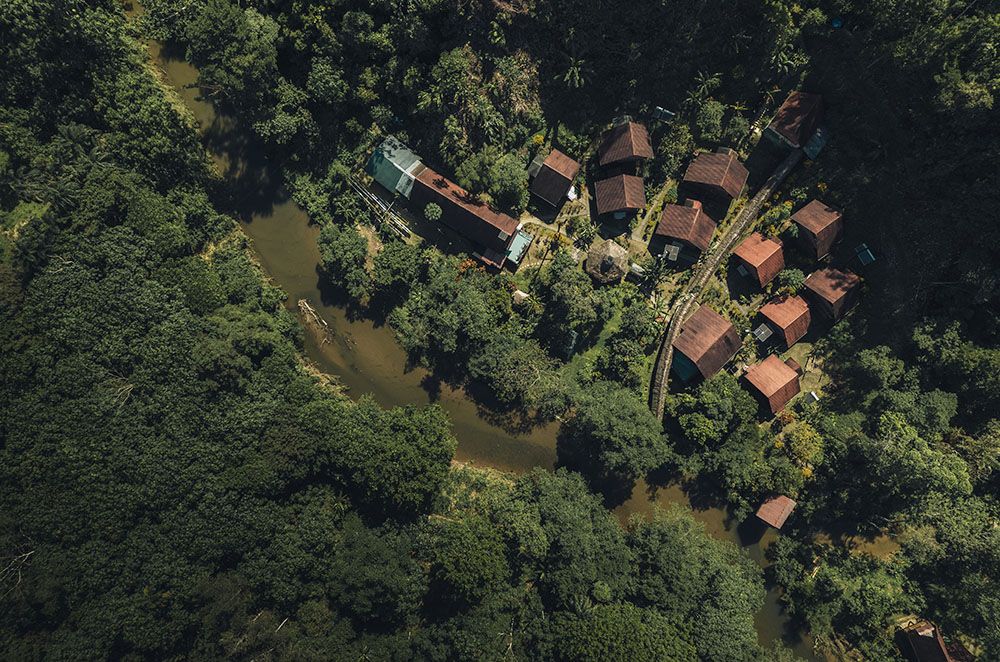
As we glide through the water, we take in the fresh atmosphere, the gorgeous landscapes, and the sounds and sights unique only to the rainforest. The lodge, which has only river access, has been running for more than 24 years, pioneering the social and ecological sustainability that is only recently becoming part of the main discourse in the world of tourism.
As our local team receives guests with a pleasant smile and a general briefing of the project, guests start to feel the reasoning behind the conservation of nearly 300 hectares of primary rainforest - meaning those sections of the jungle which have not had any human intervention, and why all the team is part of the Chontayacu Kichwa community.
It might seem commonplace, or even logical for us at Skål International, that social, economic, and environmental sustainability must work in cohesion and balance, in such a way that merely one or two of these pillars is not enough to create a long-term business project. Today, Yacuma keeps protecting this small treasure of abundance and biodiversity, and it is our turn to look for the future of conservation.
After pioneering in the use of solar panels for water and electricity, in the expansion of rainforest reserves, and of local production and supply chains of food and supplies, we look forward to a future of enhanced cooperation and protection. It makes us proud that our country is working quickly towards 30% of the territorial land mass, declared part of the national park and protected area system (SNAP), by the year 2030, by integrating private reserves into nationwide natural heritage sites. Yacuma is happy to become one of the first private reserves to become integrated into this outstanding effort, as we are currently finalizing our paperwork process, guaranteeing that our territory will become part of our shared natural areas.
And what comes next?
Last week, mushroom growers reached out to us, curious to know about the species of Cordyceps that we have come across. We have had coffee and cacao producers taste some of the fresh and delicious produce generated not far from the lodge. Curious birdwatchers have come across the list of 240 species of registered birds that reside within the Yacuma reserve, and they are starting to plan their trip to the jungle with species they want to see. The potential for specialized guides, and for growing rare spices, mushrooms, plants, and fruits, is not only real, but can generate future economic opportunities for the locals.
With correct funding and infrastructure, one can easily dream about a future where the community, and by extension the lodge, does not need to buy supplies from outside the jungle, where locals can create sustainable agroforestry models, or even new and futuristic medicine, created from plants and insects used by the communities for centuries—all resources from the jungle, all models for non-extractive economic prosperity.
As small business owners, it can sometimes be hard for us to find the time to support these new projects, but it creates a sense of possibility that is not only exciting but a necessity for a future where we need to think outside the box. Tourism can be sustainable, and we can lead the charge of a future of possibilities outside of our industry.
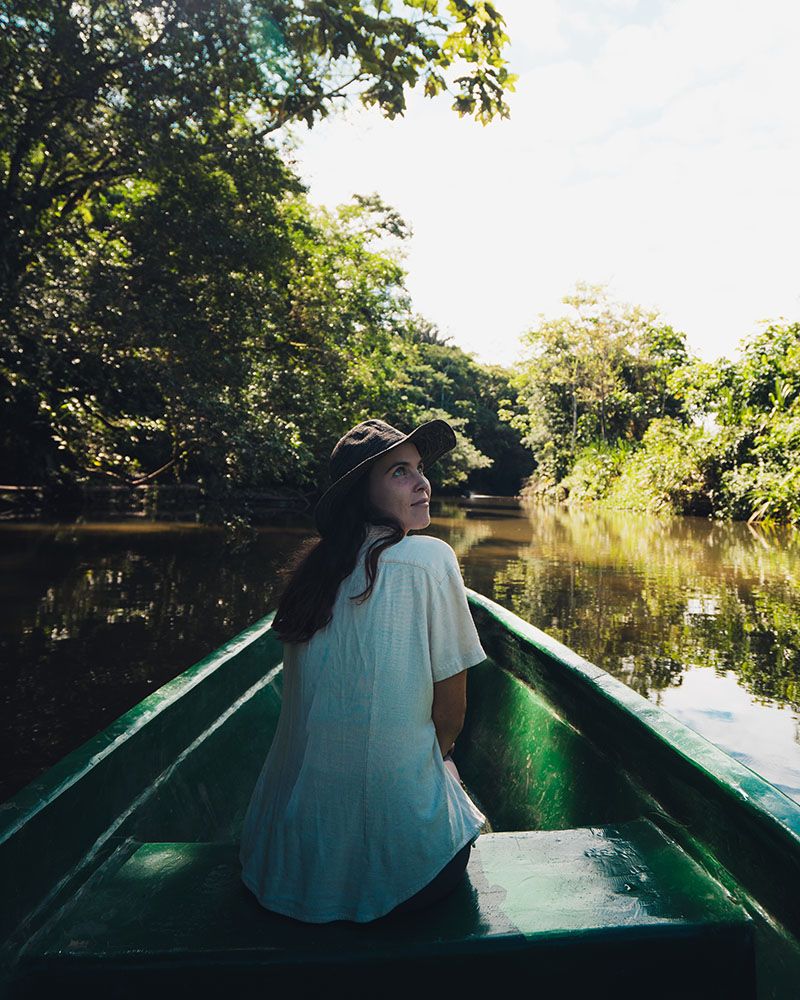
I am sure many Skålleagues have faced problems of deforestation, contamination of water, and political struggles in their place of work, but I know that we are a resilient and strong industry. I'd love to hear similar stories of the positive work that we are all doing worldwide and open up discussions about what our impact can be for the future.
We will let our fellow Skålleagues know the moment that Yacuma is 100% part of the Ecuadorian system of natural protected areas, a very exciting prospect for the future of this small piece of rainforest.

